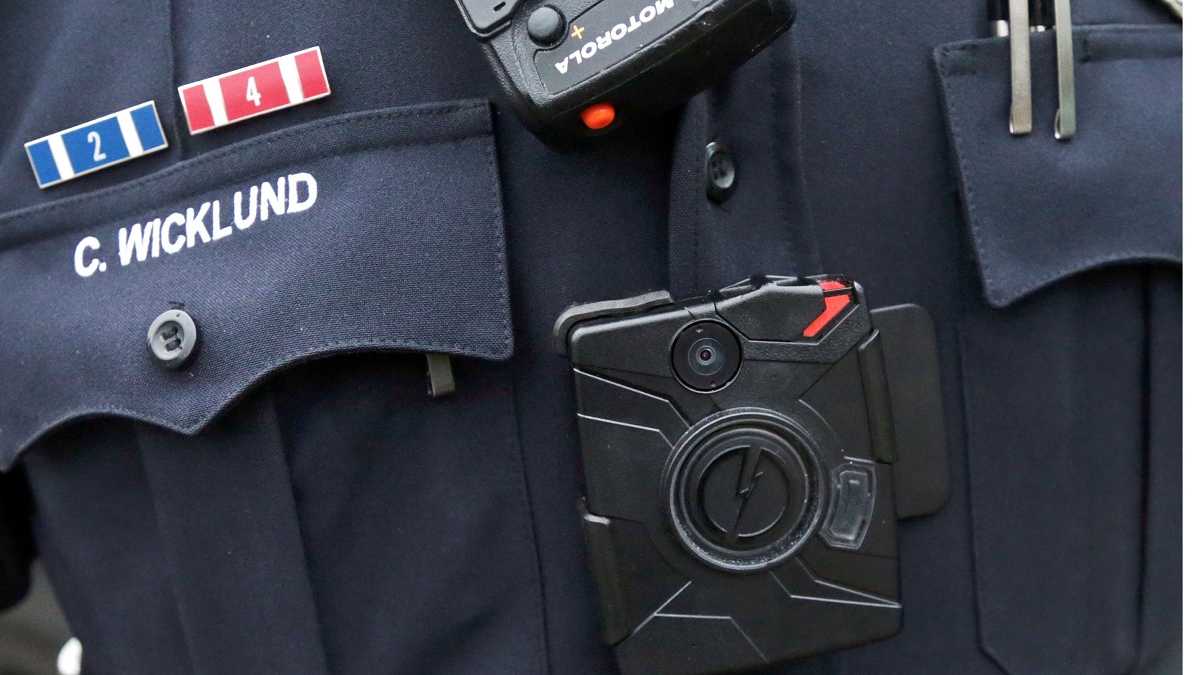Delaware police agencies to adopt uniform body camera policy

(AP Photo/Jim Mone, File)
Delaware law enforcement agencies soon will adopt a uniform policy for officers’ use of body-worn cameras.
On Wednesday, State Rep. Larry Mitchell, D-Elsmere, State Rep. Sean Lynn, D-Dover, and law enforcement officials announced an eight-page outline, which includes procedures for when and how to use the cameras, storing data and restrictions on using the devices.
The announcement follows several months of meetings between the Delaware Police Chiefs’ Council, the Office of the Attorney General and the Department of Safety and Homeland Security. The gatherings began after lawmakers passed a resolution last year requiring the agencies to develop and adopt a uniform policy for body-worn police cameras.
“In recent years we have seen an increased call for law enforcement to wear body cameras, not just to protect the public, but the officers as well,” said Mitchell, the main sponsor of the resolution, and also a retired New Castle County Police officer.
“Body-worn cameras help increase transparency and provide a record of encounters between officers and the public. While body cameras alone won’t address concerns, they can be very helpful.”
The use of body cameras is part of an effort to ensure transparency and maintain public trust. Although not a direct consequence of these incidents, police in Delaware have come under fire in recent months for alleged abuse against suspects.
In December a jury found Dover police officer Thomas Webster not guilty of assault stemming from an incident where he allegedly kicked a suspect in the head.
In September Wilmington Police shot and killed Jeremy McDole after reports he was concealed with a weapon. Family and friends of the alleged victim have been calling for justice.
“I think the policy is to protect the public, protect law enforcement, and present a visible picture to all involved so there’s no discrepency on what happened,” Mitchell said.
Under the newly established policy officers equipped with body-worn cameras must activate the technology when an arrest is likely, when the use of force is possible or during any other incident where the safety of individuals and property in Delaware is promoted.
The cameras should not be used during encounters with undercover officers or confidential informants, or during instances where a victim or witness requests the camera be turned off, the policy states. When a camera feed is interrupted or terminated, or if an officer fails to activate the device, the policy requires him or her to report the reasons why.
“As more Delaware police agencies begin to deploy officers with body cameras, it’s extremely important that we have a uniform policy in place that can guide the use of this technology,” said Lynn, who co-sponsored the resolution, in a statement. “I believe we’ve struck a balance with this policy that is helpful and instructive to law enforcement and fair to the public.”
The Delaware Police Chiefs Council said it would distribute the policy to all agencies currently using body cameras, and any others considering the implementation of the devices.
Seven Delaware police departments currently use body-worn cameras; New Castle County Police Department, Ocean View Police Department, Middletown Police Department, Bethany Beach Police Department, Smyrna Police Department, Delaware State University Police Department and University of Delaware Police Department. Delaware State Police currently is going through a pilot phase.
“The policy was unanimously approved by the members of the Delaware Police Chiefs Council and we believe this policy is good for both law enforcement and public that we serve,” said Police Chiefs Council executive director Jeffrey Horvath in a statement.
WHYY is your source for fact-based, in-depth journalism and information. As a nonprofit organization, we rely on financial support from readers like you. Please give today.





